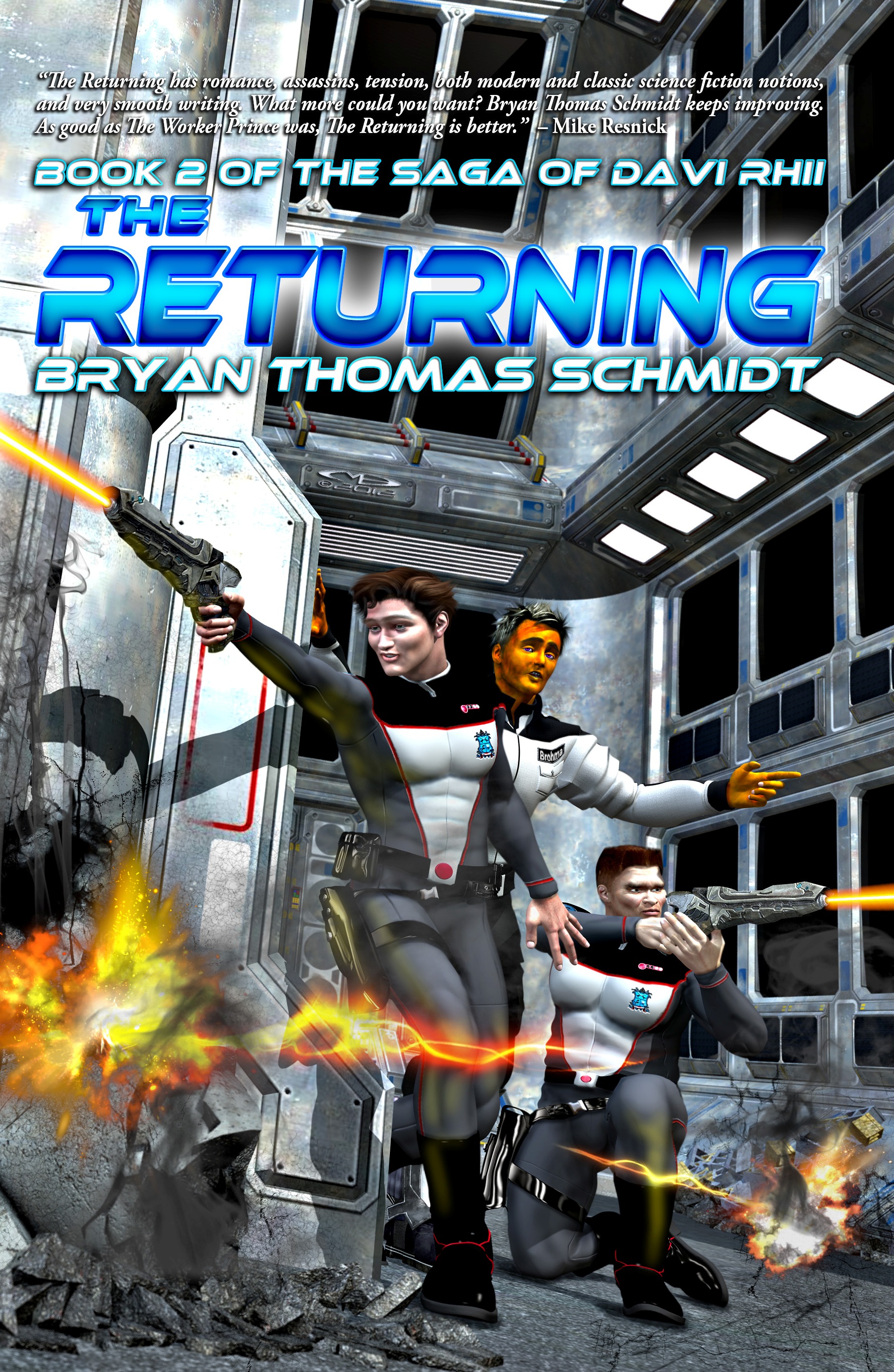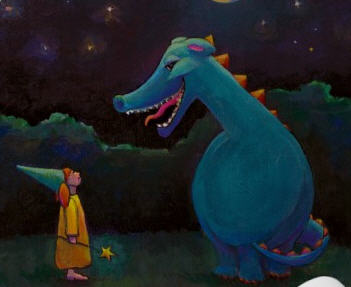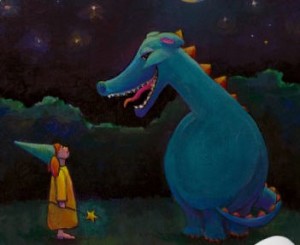All right, here’s a confession. Yes. I’ve become a very bad blogger. Whereas for two years I posted twice a week, Mondays and Thursdays, with regular aplumb, I now find myself posting every other week at least once, two if I’m lucky. So I apologize. Amazingly, the audience for the blog remains steady, even when I don’t post. Some of my posts continue gaining new views regardless, so it’s encouraging that my content matters. But still, my drain creatively from being so busy with editing and writing has hurt my blogging. I am just not thinking up ideas or having creative energy for it like I used. I’ve failed to do some interviews too and had to back off on others. Sincere apologies for that. But I also do not want to be one of those people who posts boring blog posts just to post. You don’t care if I bought new socks, changed shoe sizes, or what I ate. This blog is about writers and editors and helping the same. So I need content that’s appropriate with substance.
So, I hope this will be a worthwhile post. Those who follow me on Twitter and Facebook know I have been working on my first fantasy novel, Duneman, since January2010. Well, it’s finally done, four drafts later, and four agents are considering it for representation. In the meantime, I have started work on book 2 of that cycle, called The Dawning Age, which I expect to be 4-5 books total. Yeah, that’s right, I’m not sure. I’m a discovery writer, a pantser. The only reason I have an idea I can’t do it in three is because the agents asked for synopses of the next two books, so I had to throw something together. I did a pretty good job with Book 2, I believe, but I was totally lost on book 3…because book 2 isn’t done yet.
So meanwhile, here’s a sneak peek at my first fantasy novel. I hope you enjoy it. It took a while to write but I enjoyed every minute.
DUNEMAN
(Dawning Age Book 1)
CHAPTER ONE, Scene 1
He gained consciousness sweaty and hot, lying on his back. It took a moment for the black spots to fade, replaced by the blinding sunlight and white sand stretching as far as the eye could see. Where am I?
The sandy landscape reflected sunlight and heat back at him as he sat up, shaking off the sleep. Scattered belongings—clothes, canteens, a shattered barrel and trunk, torn saddlebags—
stretched off into the distance toward the remains of a wagon. Footsteps led toward him, smeared and uneven as if perhaps he’d stumbled to where he lay. Sunlight glinted off flesh atop a nearby dune. Was someone else alive? Scattered severed limbs—an arm severed at the elbow, the hand still attached, fingers stiffened like claws, a leg severed mid-thigh, another cut off mid-calf—provided the answer.
His back ached as he examined himself. Tattered brown pants stretched down to just below his knees where threads of scattered lengths were all that remained. He had no shirt or shoes or socks. The skin of his feet was sunburned cherry red. No wonder his body felt aflame. How long had he been there?
And then it hit him like a stone from a slingshot: Who am I? He searched his memory but no name would come. His mind was like an unpainted canvas or a new fence awaiting its first coat of color.
His left shoulder cried out with every movement of his arm, so he reached back to examine it with his right and found a long, scabby cut running in an arc down his back. Had he been in a fight? Who did this to him? He checked himself again for cuts and abrasions. His forehead hurt, and dried flakes of blood came away on his palm and fingers. He had a large bruise on his abdomen and small ones on his chest and stomach. Pain flared as he moved his right ankle, but he couldn’t tell if it came from sunburned skin or a jagged cut, scabbed over now from the heat and sun.
He stood and his feet cried out in protest. He wobbled, losing his balance and forcing him back down to his knees. He buried the pain in the back of his mind and turned slowly in a circle, looking around him. Scattered, thin cumulus clouds filled the clear blue sky overhead. Thick sandstone walls and clay-tiled roofs topping white stone buildings rose in the distance, a few spires and towers looming in their midst. A trail of smoke curled into the sky from behind them. A city!
Water!
Wait! Why didn’t he hear anything? A few sheep bleated from the west, their cries mixed with scattered insect chirps and bird calls, but there were no sounds of people, wagons, horses, tools. Maybe when he got closer. Ignoring his feet’s protests, he stood again and stumbled across the curved white dunes toward the sandstone walls.
Ahead, beside the city walls, a boy herding sheep stopped a moment to use the untucked tails of his loose-fitting light blue shirt to wipe sweat from his darkly tanned forehead. His boots stretched up over his brown pants well past his ankles, and he held a tall, curved wooden staff in his right hand as he watched the desert grassland and the herd around him.
Drawing near, the man called out to the shephard. “Ho, neighbor! A fine day for herding.” His chapped lips and parched throat hurt from the effort, reminding him how much he longed for water.
The boy nodded, staring at him with caution, his left hand wrapping firmly around the staff just below his right.
“What city is this?” The man smiled, not blaming the boy for his wariness. I must look a fright.
“Chyllos, stranger.” The boy’s voice cracked in the way that occurs when one transitions from a boy to a man.
He must be older than I thought. “What day is it?”
“Third day.” The boy spoke with a gentle, plain accent, his words slow and deliberate.
Orean Midlands? The question popped into his head along with images of the Lands, his home. Multiple states, the Elbian pass and mountains, the mighty Esos River, source of water for much of the inlands. Then: I remember seven day. Could I have been unconscious that long? “Do you know where I might get water?” He hocked, trying to call up enough saliva to wet his cracked, painful lips and throat, but none came. The boy carried no canteen, and there was no sign of a well.
“There’s a well in the square.” The boy nodded toward the city walls.
The man limped past the first of the sheep, the boy shrinking away as soon as he moved. “Thank you kindly.”
The boy turned his body to keep the stranger at his front, and the man continued feeling the shephard’s gaze on him as he waded through the grazing herd and on toward the city. A wide, wooden gate stood open to one side with no one standing guard.
The stranger entered through the high stone walls, moving along a sandy street past shabby, rundown houses packed in side-by-side. Their second floors projected out over the boardwalk and into the street where crude signs dangled from creaking rusted hooks. The city appeared to be on the verge of collapse. What city would be this deserted at mid-day?
He hurried up the street, garnering surprised stares from a couple shopkeepers sweeping the wooden boardwalk in front of their stores. Ignoring them, he continued toward a sign labeled “tavern” at the far end, then stumbled up onto the wooden boardwalk. The tavern stood along yet another sandy street which wound off into the distance in both directions. A quick search revealed no currency in his ragged pockets. For a moment, he considered passing by to look for the public well, but the sun continued its baking blare and surely a tavern had water. He grabbed the door handle and swung it open, assaulted immediately by the smell of sawdust and smoke. Stepping inside, the scent of stale ale filled his nose as he waited while the door shut behind him and the sunlight faded away.
The tavern seemed typical for a small city, dimly lit with torches spread evenly around the room on hooks attached to the white plaster walls. The bottom half of each wall consisted of wooden slats hung side-by-side, the floor of matching dark wood with a thin layer of sawdust. As his eyes adjusted, he spotted a bar across the room beyond scattered round wooden tables and chairs. A bartender eyed him from behind the worn, polished surface with the same wary look as the shepherd boy.
“Good afternoon, neighbor,” the man said. “Can you spare a cup of water for a stranger?” For a moment, he wished he could ask for clothes, too.
The bartender was large and muscular, his skin dark like the shepherd’s, a brown leather apron tied over the top of a loose fitting white shirt and brown trousers.He scowled as the stranger approached. “How did you get here?” he demanded in a scratchy baritone, as the stranger sat on a tall stool in front of the bar.
“I don’t really know. I’m told this place is Chyllos, but I’ve never been here before.” He shrugged.
“What happened to your clothes?” The Bartender said, staying put at the far end of the bar.
The man shook his head. “I awoke on the dunes. The sun is brutal today. Can you please spare some water?”
The bartender grunted and turned to a large wooden barrel in the corner, reaching into it with a long metal ladle and pouring water into a wooden cup. Setting the cup on the bar, he slid it down to the stranger, watching as water splashed out onto the scarred surface.
The stranger drank eagerly. The fresh water cooled his mouth and throat. Even as he finished, he longed for more. He held out the glass to the bartender and croaked: “More please?”
The bartender grunted again, approaching with the metal scoop and pouring its contents over the wooden cup on the bar until he’d filled it once more. The man noticed the bartender held the scoop as far from the cup as he could manage so they didn’t touch. He drank again, smiling. Water had never tasted so good. He sighed, wiping his dry, cracked lips on his sleeve. “Thank you very much, neighbor.” His voice was louder and warmer now as the water lubricated his throat and the pain faded.
The bartender glared at him. “Okay, now be on your way.”
The man nodded. The bartender must not care much for nonpaying customers. “Can you direct me to an inn?”
“There are no inns available here for the likes of you,” the bartender said, ending the conversation.
“If I have offended you somehow—”
“You offended me the day you were born—you and all your kind.” The bartender’s eyes narrowed, cold and flat. The stranger finished drinking and set the wooden cup back on the counter. What have I done to deserve his wrath? The bartender motioned to the cup. “Keep it. It’s worthless to me now.”
The stranger nodded and grabbed the cup off the counter, stumbling toward the door.
Sunlight blinded him again as he stepped back out onto the street. He looked around for an inn, searching the creaking wooden signs hanging from the buildings but seeing none in sight. He had to find some clothes and shelter. He limped west along the street past startled citizens sweeping storefronts or moving along the boardwalk with parcels. They hurried out of his path as he passed, scowling at him much as the bartender had. What have I done? He couldn’t remember ever being in Chyllos before, and, the further he went, the more the silence bothered him. Where were the people who patronized these establishments?
At the end of the boardwalk, he turned into a dirt alleyway between buildings and bumped into a well-dressed woman in a lacy, silk dress who’d just emerged there. “Excuse me,” he said, stepping away from her.
Her brown eyes went wide and she stared at him in horror. “Get away from me!”
The stranger turned, confused, as she ran away down the street, startled by her fear and hostility. How could someone who’d never been here before be so disliked? What was it about his kind that made them react with fear?
The bartender stood on a boardwalk, chatting with neighboring store owners and pointing at him. All three frowned, squinting angrily. Down the street, dust flew from wagon wheels as a large, dark-bearded man steered his team up the street in the stranger’s direction.
The stranger ducked into the alleyway, hearing the braying of donkeys and whinnying of horses ahead. At the end, he passed a stack of hay bales and moved onto another sandy street beside a large wooden stable. Maybe he could at least get shelter from the sun there.
As he turned right, onto the street, he saw the bartender and several others appear from an alley further down and hurry toward him up the street. Why are they chasing me?
Ducking back into the alley, he turned right again at the main street. Chattering voices came from behind and he glanced back over his shoulder as the frightened well-dressed woman pointed at him, jabbering to several men.
Quickening his pace, he looked for another alley or a good place to turn. He heard shouting and looked back to see the men following him now. The bartender and shopkeepers swooping in from the same alley the stranger had just used to join them.
Turning onto a narrower side street, the man hurried on past storefronts with faded paint fronts and a rotting boardwalk of crumbling wood. Where could he go? Then he heard whinnying and felt the dirt street vibrate as the dark-bearded man in the wagon turned onto the street, following him.
The stranger started running, his burned feet aching from the effort, but then the wagon was passing him. The driver looked down, whistling and motioned toward the wagon. “Get in, stranger!”
The man shot a questioning look. “I didn’t do anything to anyone, sir, I promise.”
“Get in unless you want to explain that to them,” the driver said, slowing his team to a crawl. “Trust me.”
The man could never outrun them. He sighed and jumped onto the back of the wagon.
“Cover yourself quickly!” the driver instructed as he spurred his team forward again.
The man slid down into a bed of straw and pulled the old blanket the driver had indicated over himself. The wagon increased its speed, bouncing harshly up onto cobblestones now as it turned sharply around another corner. What am I doing here?
He stretched out his arms, bracing himself against the slat sides of the wagon as best he could and ignored the outcries of his aching body as the wagon continued racing along, then slowed. Shadows fell over them as he heard the crunch of straw or hay and felt the wagon lurch forward and then stop again, suddenly.
It wobbled as the driver hopped down and the man heard creaks of hinges and the sound of wooden doors sliding together and a bolt snapping into place.
He slid the blanket back, his eyes struggling to see through the darkness. Whinnying and braying came from animals other than the team somewhere as the smell of smoke, hay and manure made him wince, then he realized he probably didn’t smell much better himself.
As his eyes adjusted, he focused on a metal stand nearby containing rows of horseshoes, expertly crafted. Then sat up, blinking.
“You plan to stay there all day or come out a greet a man properly?” the driver’s baritone voice asked.
The stranger brushed hay from his worn clothes and crawled toward the back of the wagon, spotting the driver waiting there with a pensive look. “Who are you and why are you wandering the streets scaring women?”
The stranger sat on the back of the wagon, gathering himself to hop down and fumbled for words. “I didn’t mean—”
“Come now, I’m only jesting,” the driver said with a laugh, wiping his hands on the dark apron covering his brown cotton pants and loose fitting tan shirt. Even his boots resembled those of the shepherd boy. The driver reached out a thick, muscular arm, extending his hand.
The stranger clasped it and slid down, his feet thumping onto the dirt floor as the driver stepped closer and got a closer look at the man, his face a mix of wariness and concern. “Why are they after you? Did you give them a reason?”
Fire raging in a nearby stove cast dancing orange and yellow flames across the walls around them. “What is this place? A smithy?”
The driver laughed. “That’s what they call me around here.” In the light of the fire, the blacksmith’s skin appeared lighter than the other residents the stranger had encountered. His eyes narrowed, locked on the stranger’s face.
“I just asked for water. That’s all. The woman bumped into me by accident.”
“What happened to you?” The smith looked him over, examining his clothes and face.
“I don’t really know.” The stranger leaned against a wooden pillar beside the open fire. “Is it a crime to be a stranger here?”
The blacksmith nodded. “Only if you’re a wizard.”
“Wizard?” the man asked. Is that what I am?
The blacksmith nodded. “You’re from the east, aren’t you? People around here don’t have such light skin. From what’s left of your clothes and your accent, I’d guess one of the cities along the coast.”
The man shrugged. “I can’t remember.”
The blacksmith seemed puzzled. “You must have come here for a reason, although I’d dare say it appears you’ve had a rough time of it.”
The stranger sighed, nodding. “I awoke on the dunes under the brutal sun.”
The blacksmith nodded again. “The summer sun is harsh in the desert. You look exhausted. What’s your name, stranger?”
The stranger searched his mind, but still had no idea what his name was. “I can’t remember that either.”
The blacksmith raised his eyebrows. “How did you come to be here, then?”
The stranger shook his head. “I don’t know. I think I was attacked in a caravan. The town’s not friendly, is it?”
The smithy shrugged. “After what we’ve been through, some are a bit fearful around strangers, especially those from the east. I prefer to judge men on their actions rather than assume they mean ill. You don’t look like a wizard or a bandit to me.”
The stranger groaned, putting his face in his hands as if he could wipe the frustration away. “I don’t remember anything.”
“Well, if you try anything, you’ll wind up on the wrong end of a hammer, my friend,” the smithy’s eyes narrowed with warning, then he smiled. “Perhaps some rest might help you remember. I can’t offer you much, but you’re welcome to rest for a while in one of the empty stalls. This late in the afternoon, I have few customers. We can talk more later about who you are and how you got here.”
The stranger closed his eyes, sighing. “Thank you so much, Smithy, for your kindness.”
Smithy motioned toward the row of stalls down a corridor to the right. “There’s one or two empty down there. Help yourself.”
The stranger stood and moved down the corridor, forcing his aching feet and legs to take the steps one at a time. It felt like he’d forgotten how to walk. He found an open gate three stalls down on the left and braced himself on the gate post as he stumbed inside. The stall floor lay covered in clean hay. He found a large pile in the corner under the shadows and sank quickly down to his knees. His back cried out as if it were on fire. He lowered himself slowly onto his stomach, the smell of fresh hay filling his nostrils and soon fell asleep.
 Editor Bryan Thomas Schmidt is an author and editor of adult and children’s speculative fiction including the novels The Worker Prince and The Returning, and the children’s books 102 More Hilarious Dinosaur Jokes For Kids (ebook only) and Abraham Lincoln: Dinosaur Hunter- Land Of Legends. His debut novel, The Worker Prince (2011) received Honorable Mention on Barnes & Noble Book Club’s Year’s Best Science Fiction Releases for 2011. His short stories have appeared in magazines, anthologies and online. He edited the anthology Space Battles: Full Throttle Space Tales #6 (Flying Pen Press, 2012) and is working on Beyond The Sun (Fairwood, July 2013), Raygun Chronicles: Space Opera For a New Age (Every Day Publishing, November 2013) and Shattered Shields with co-editor Jennifer Brozek (Baen, 2014). He hosts #sffwrtcht (Science Fiction & Fantasy Writer’s Chat) Wednesdays at 9 pm ET on Twitter and can be found via Twitter as @BryanThomasS, on his website at www.bryanthomasschmidt.net or Facebook at http://www.facebook.com/bryanthomass?ref=hl.
Editor Bryan Thomas Schmidt is an author and editor of adult and children’s speculative fiction including the novels The Worker Prince and The Returning, and the children’s books 102 More Hilarious Dinosaur Jokes For Kids (ebook only) and Abraham Lincoln: Dinosaur Hunter- Land Of Legends. His debut novel, The Worker Prince (2011) received Honorable Mention on Barnes & Noble Book Club’s Year’s Best Science Fiction Releases for 2011. His short stories have appeared in magazines, anthologies and online. He edited the anthology Space Battles: Full Throttle Space Tales #6 (Flying Pen Press, 2012) and is working on Beyond The Sun (Fairwood, July 2013), Raygun Chronicles: Space Opera For a New Age (Every Day Publishing, November 2013) and Shattered Shields with co-editor Jennifer Brozek (Baen, 2014). He hosts #sffwrtcht (Science Fiction & Fantasy Writer’s Chat) Wednesdays at 9 pm ET on Twitter and can be found via Twitter as @BryanThomasS, on his website at www.bryanthomasschmidt.net or Facebook at http://www.facebook.com/bryanthomass?ref=hl.



